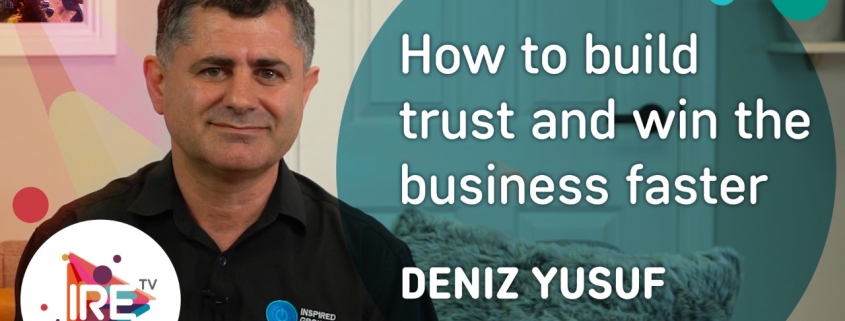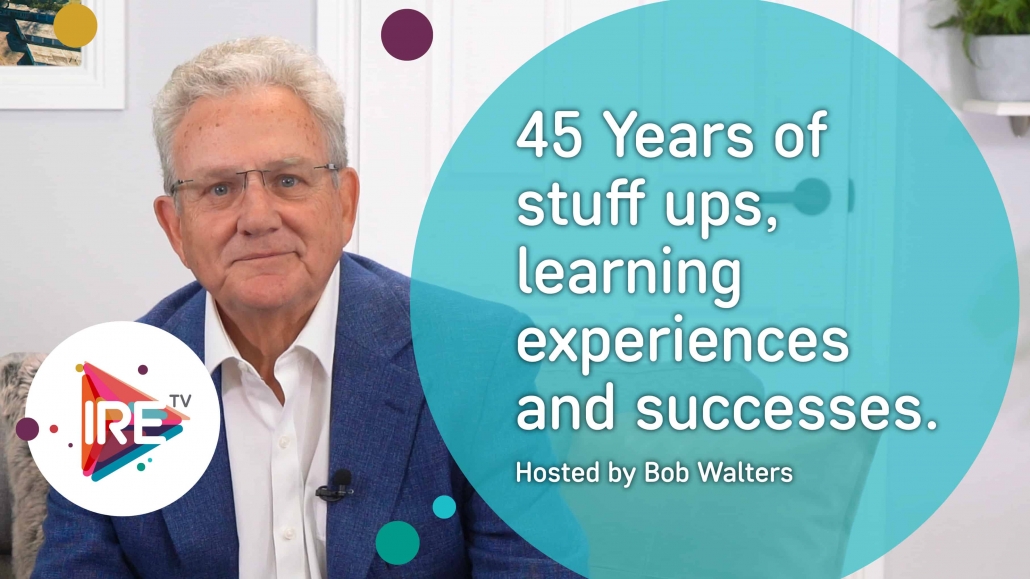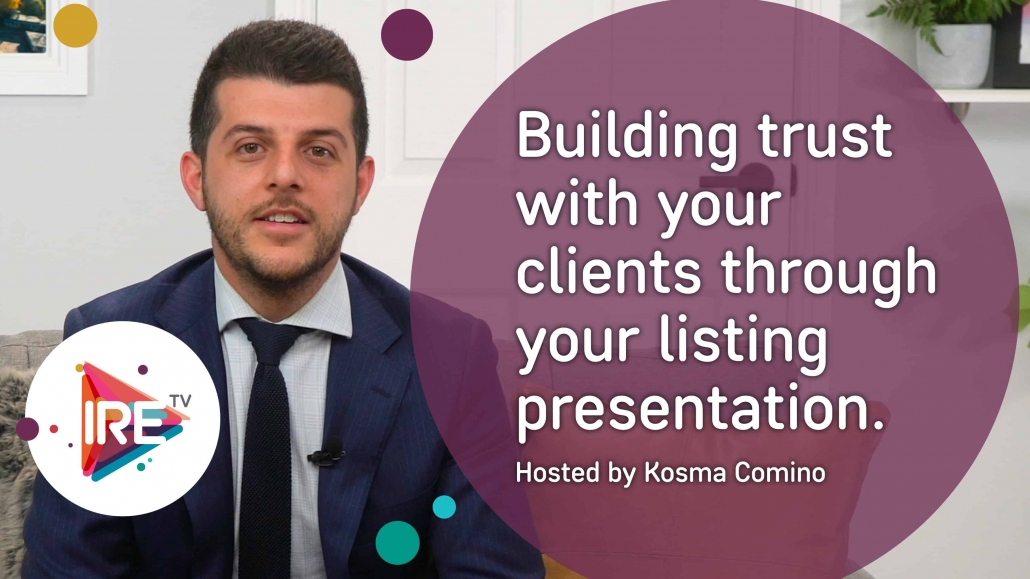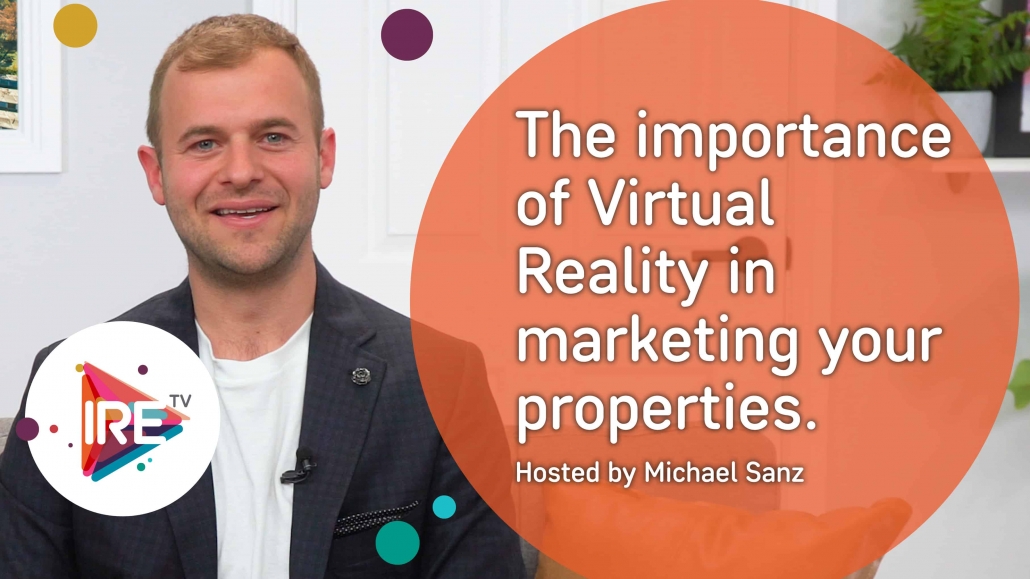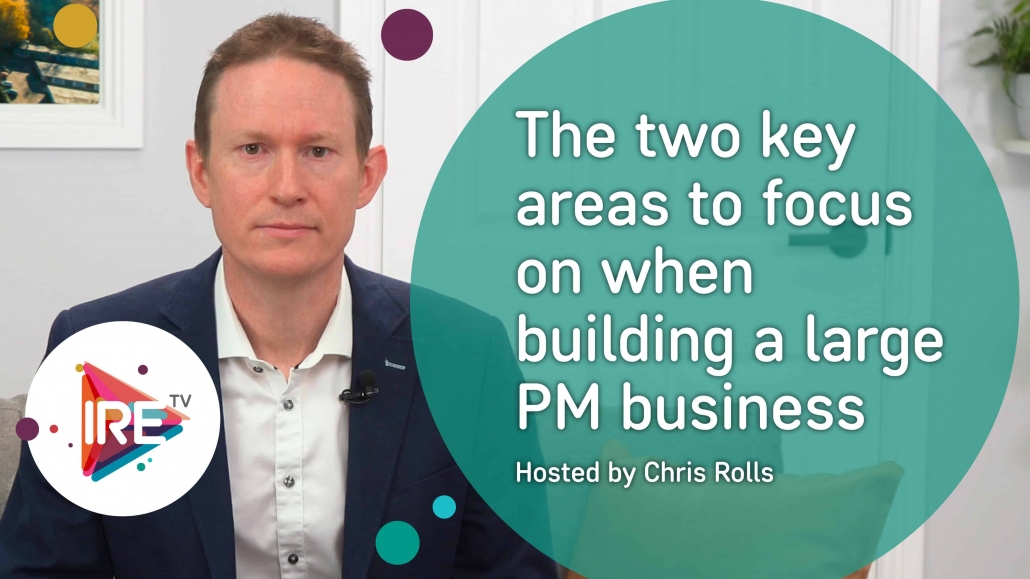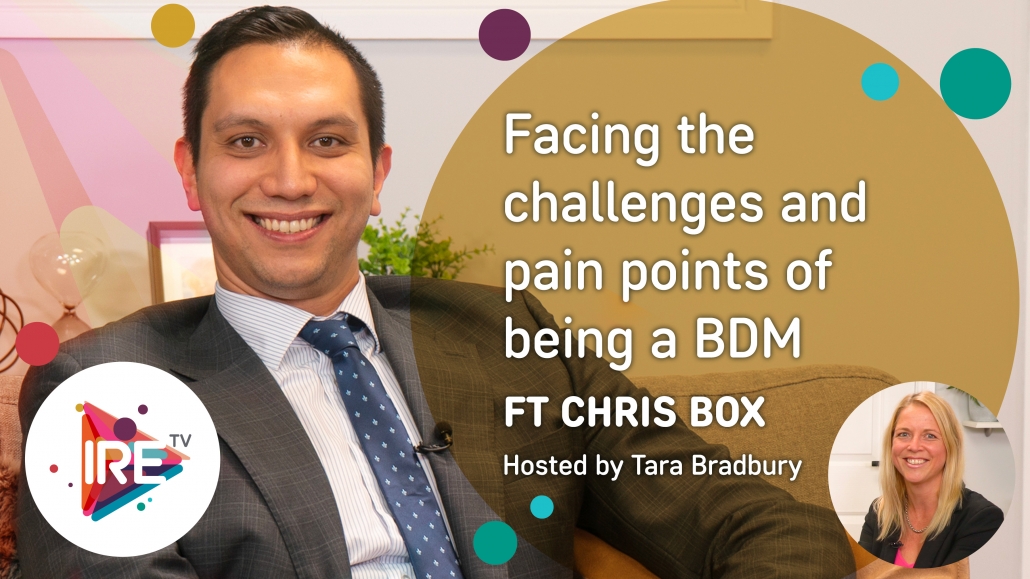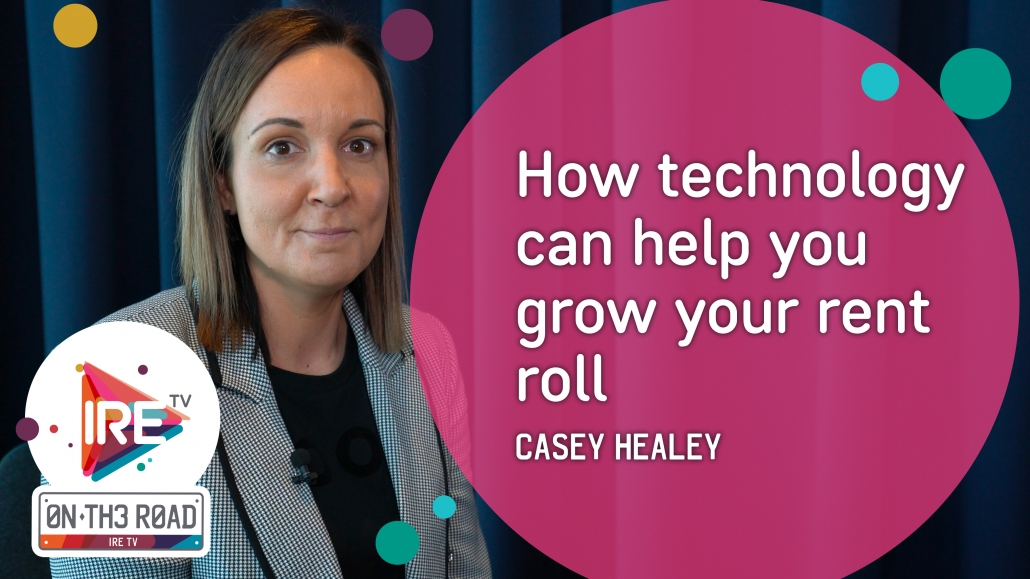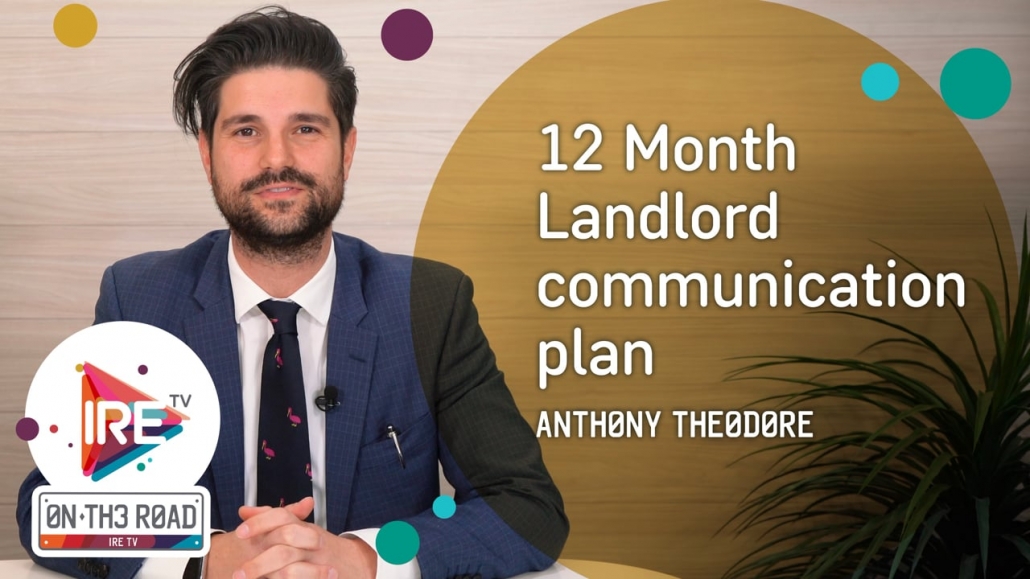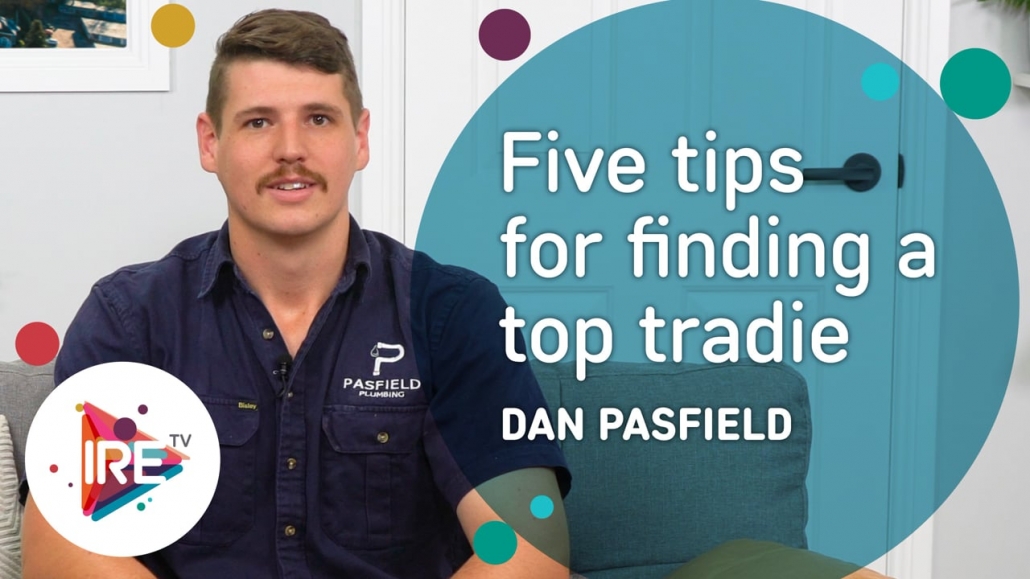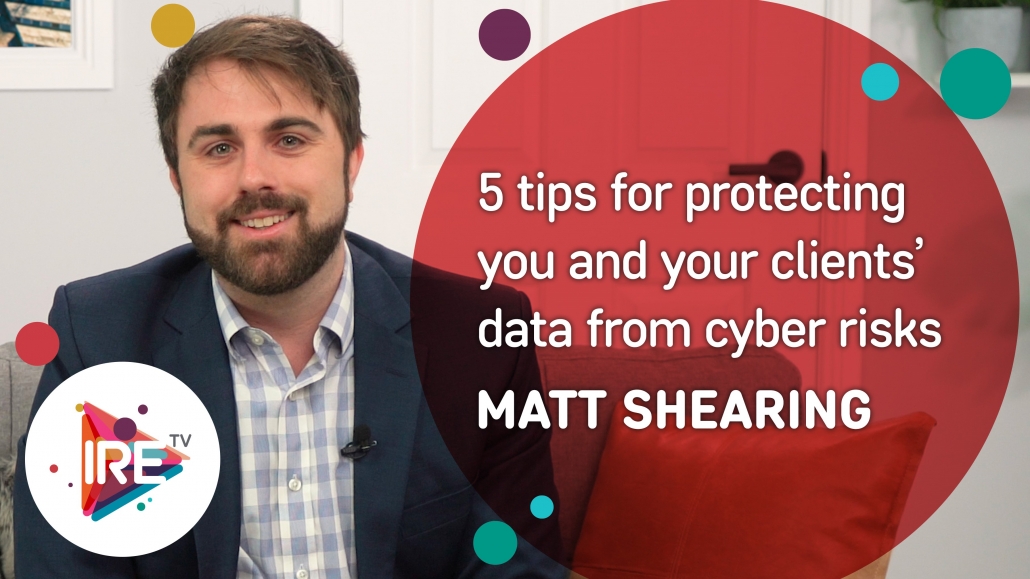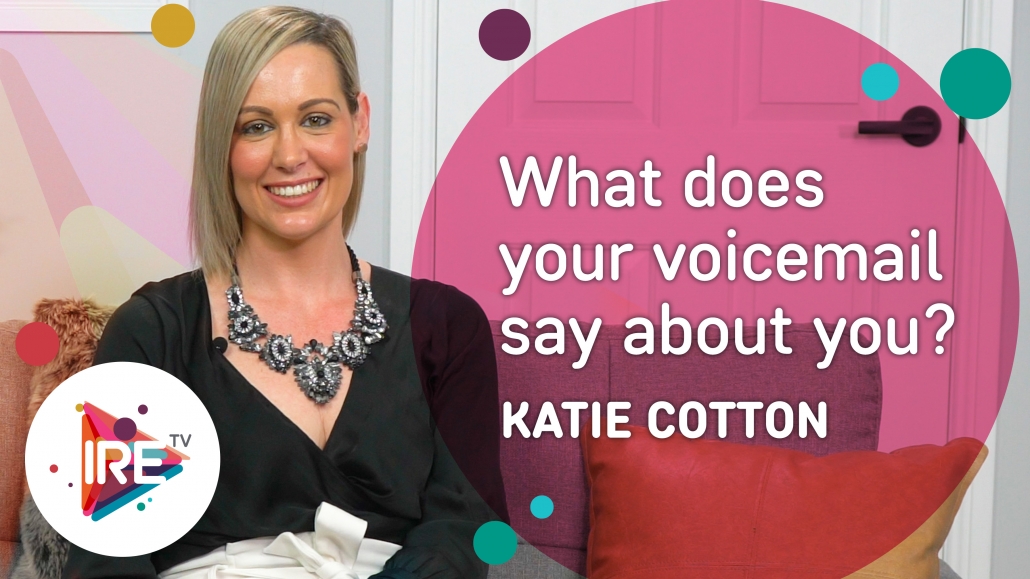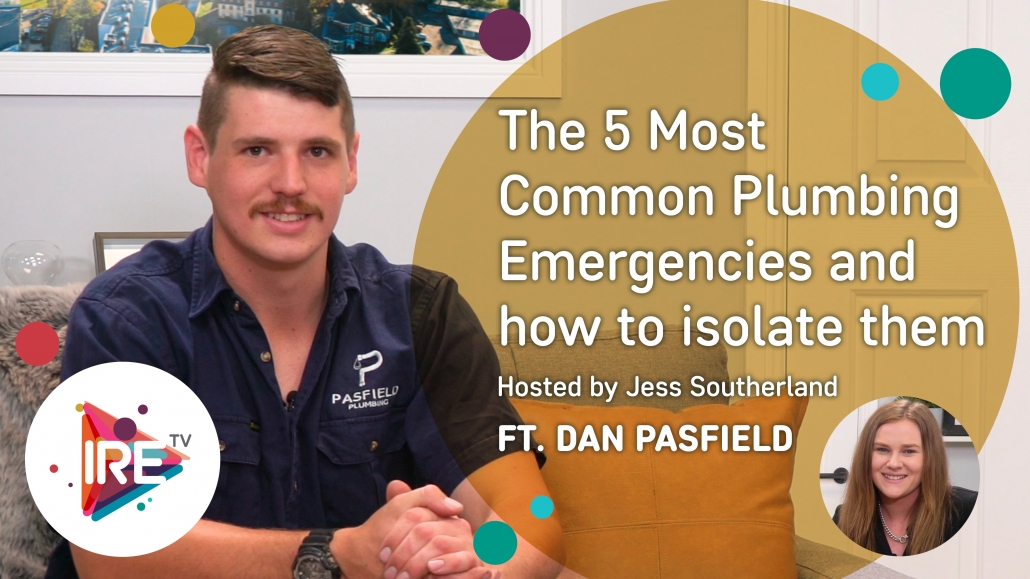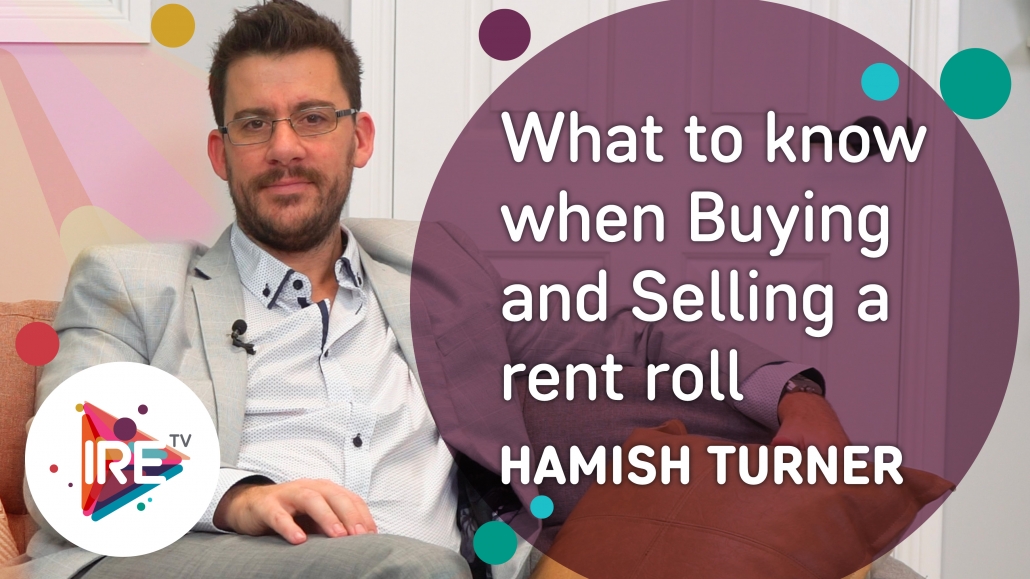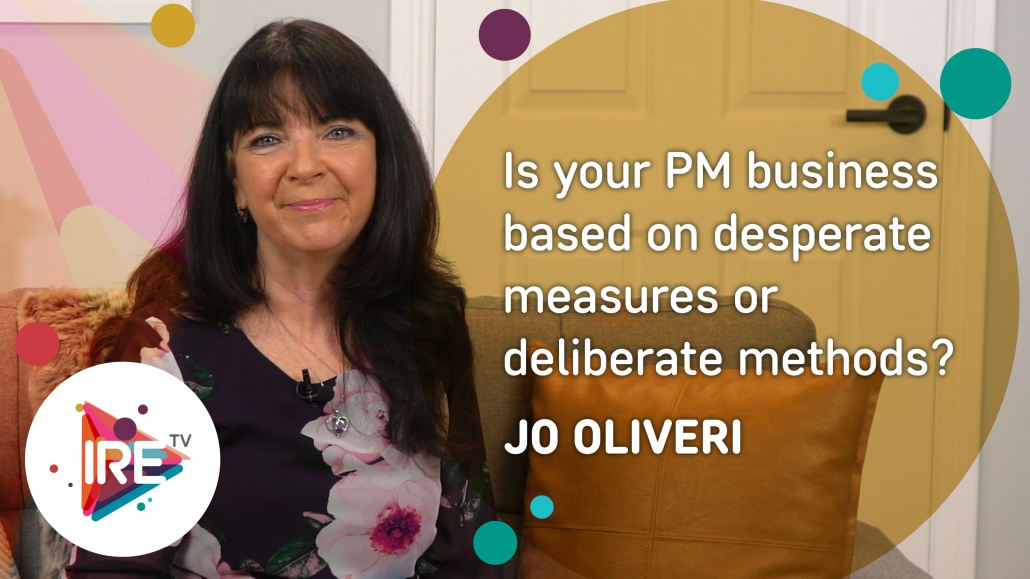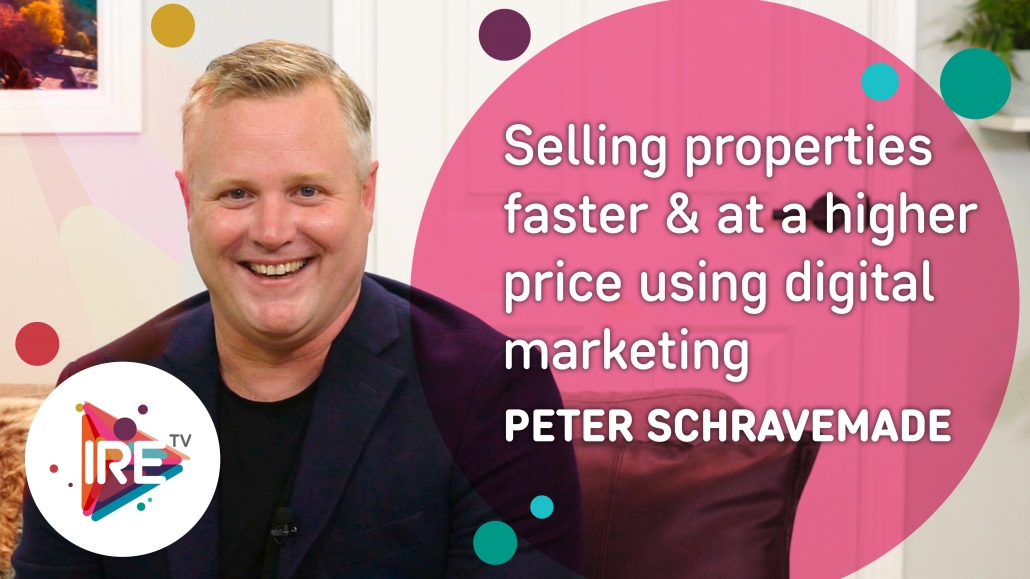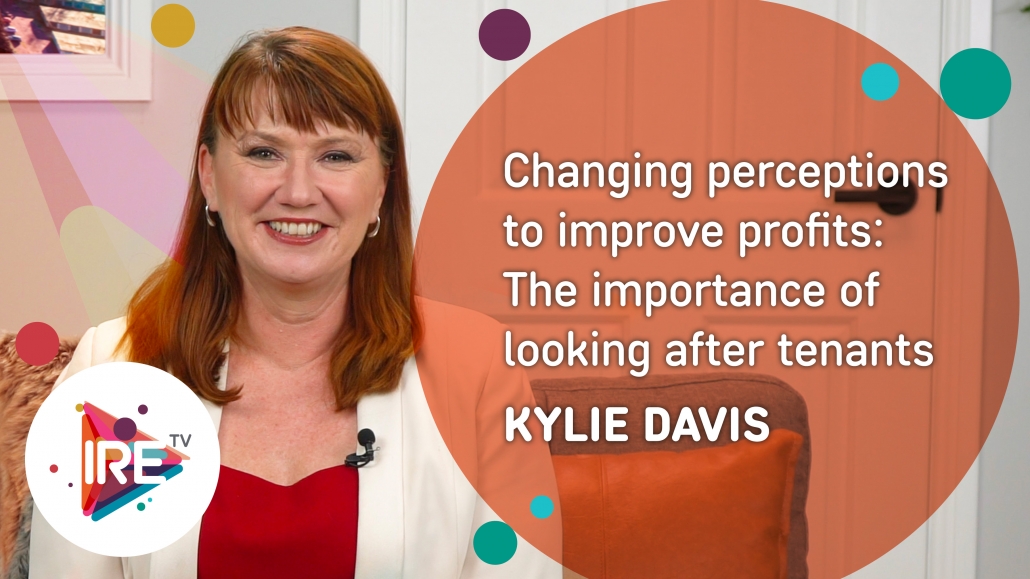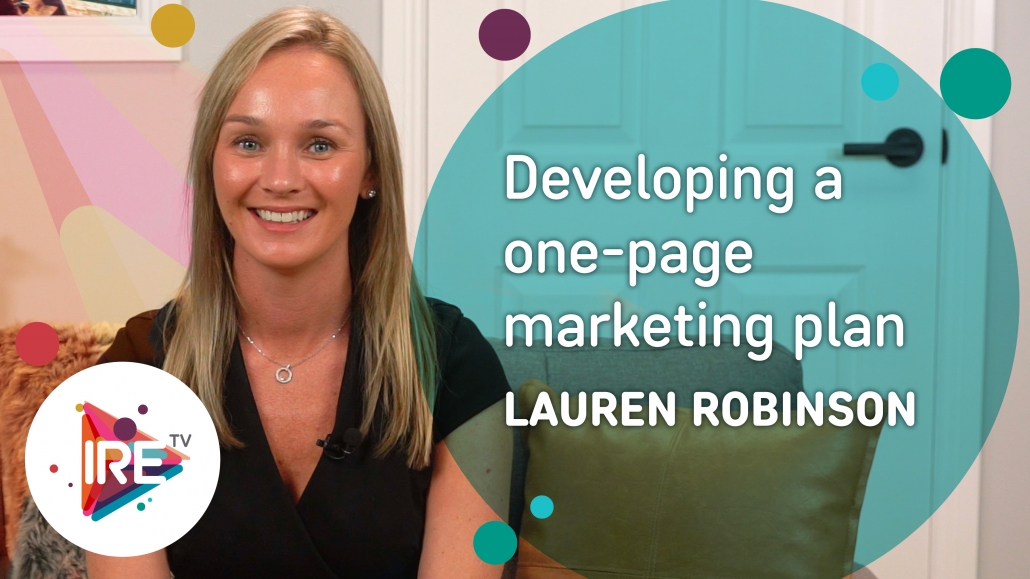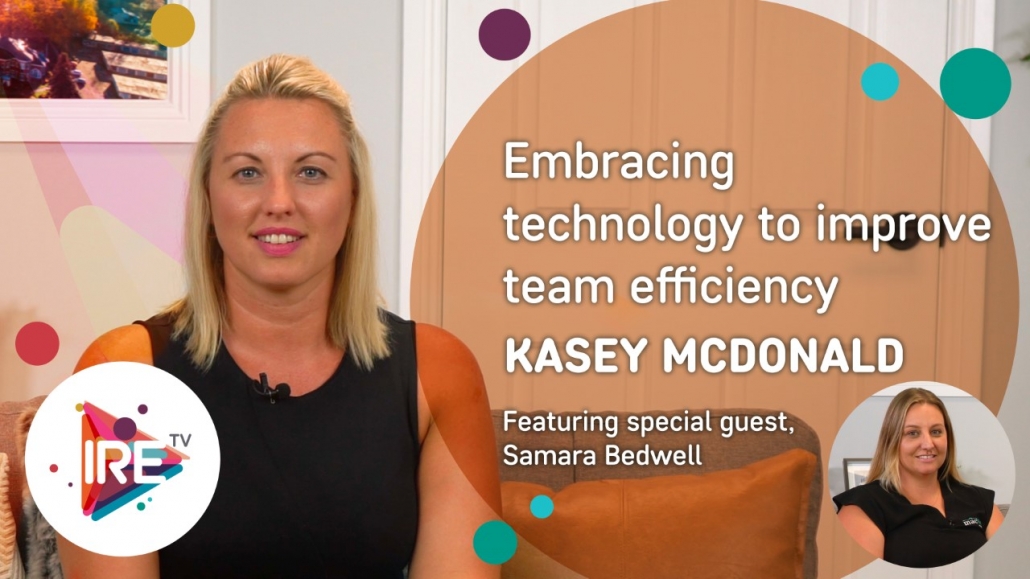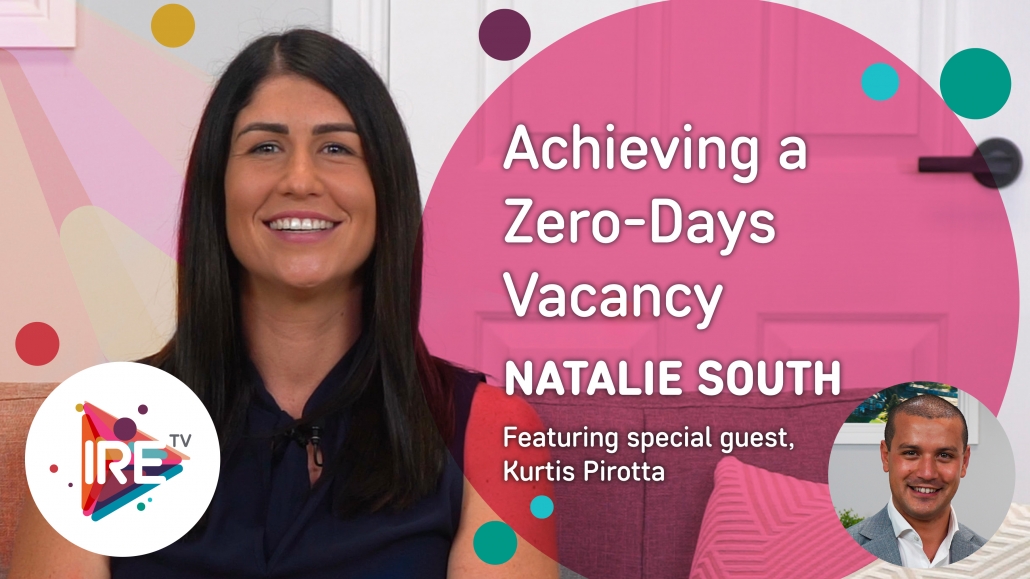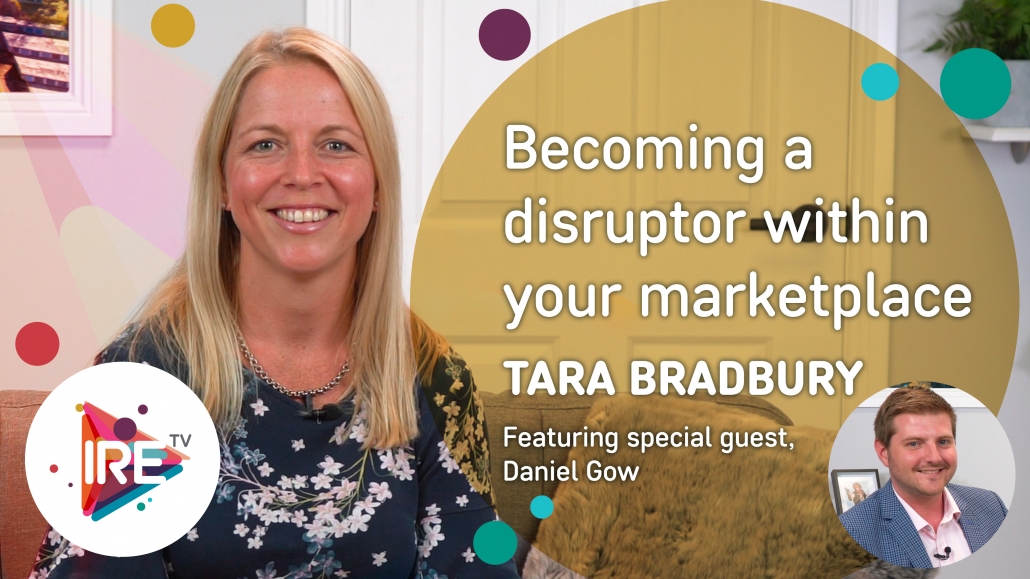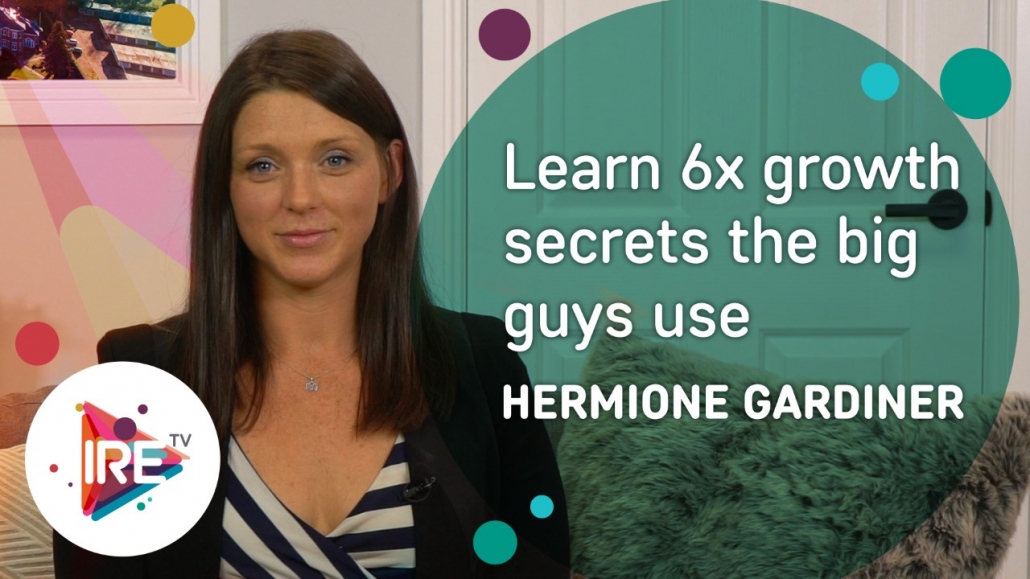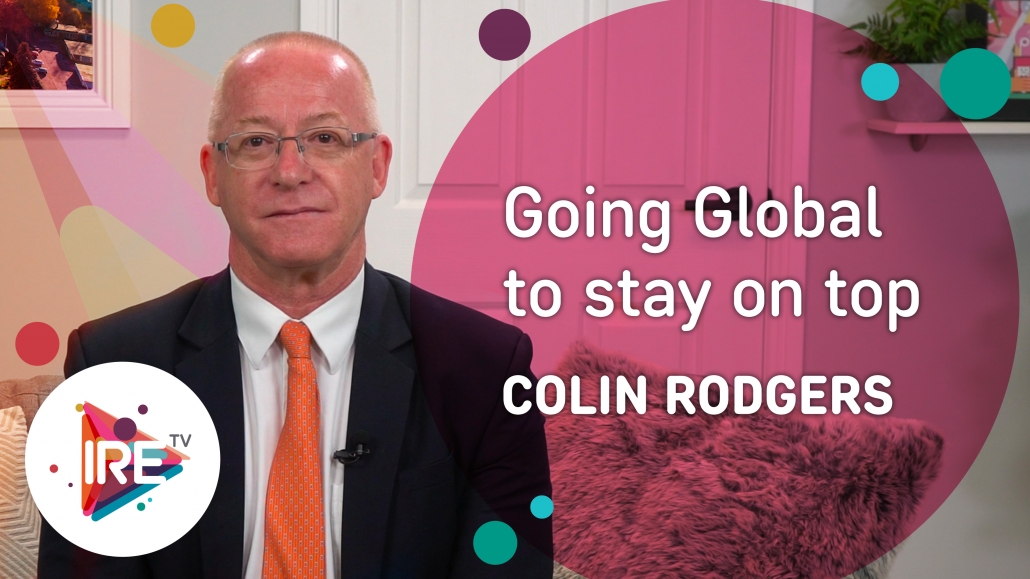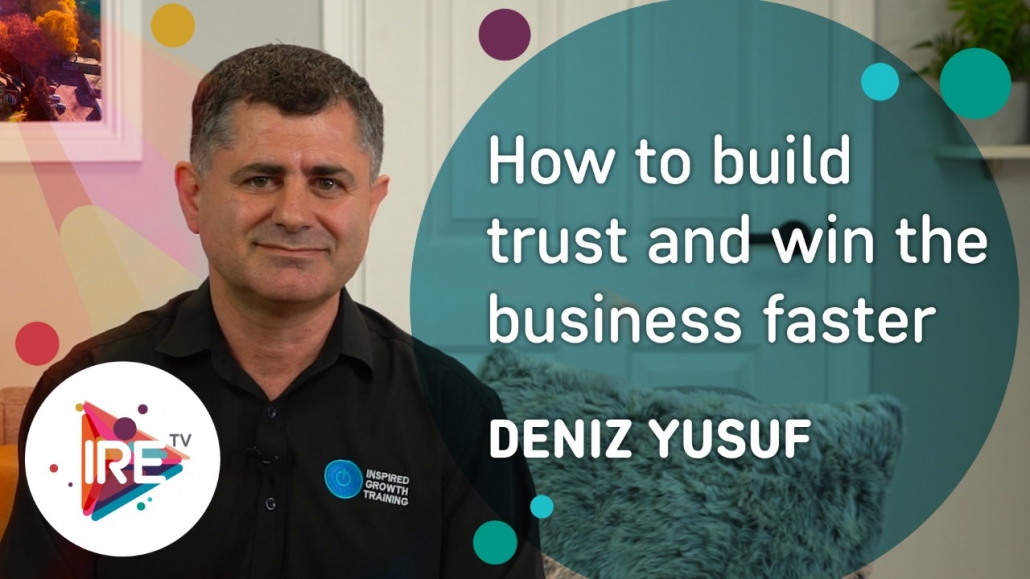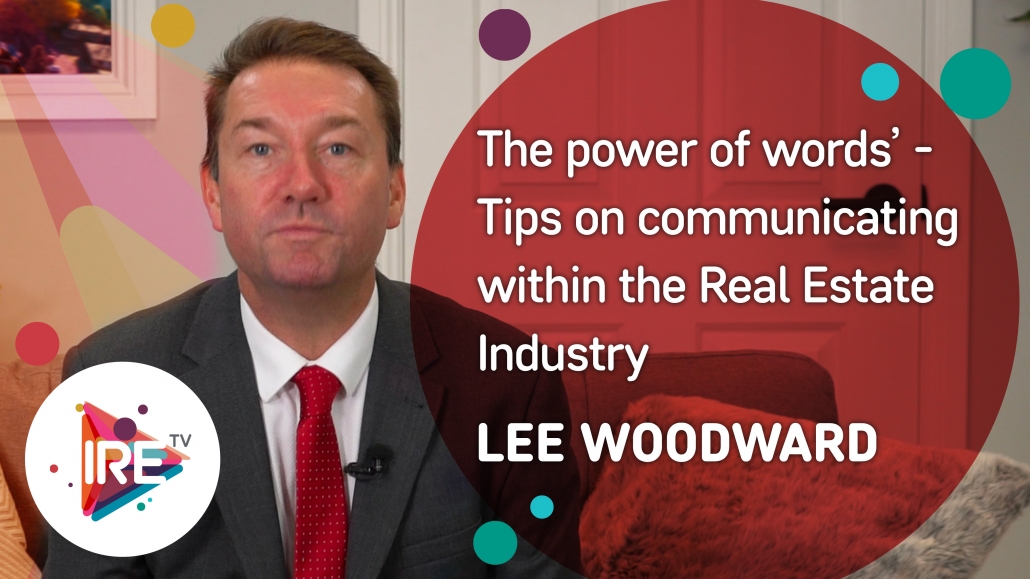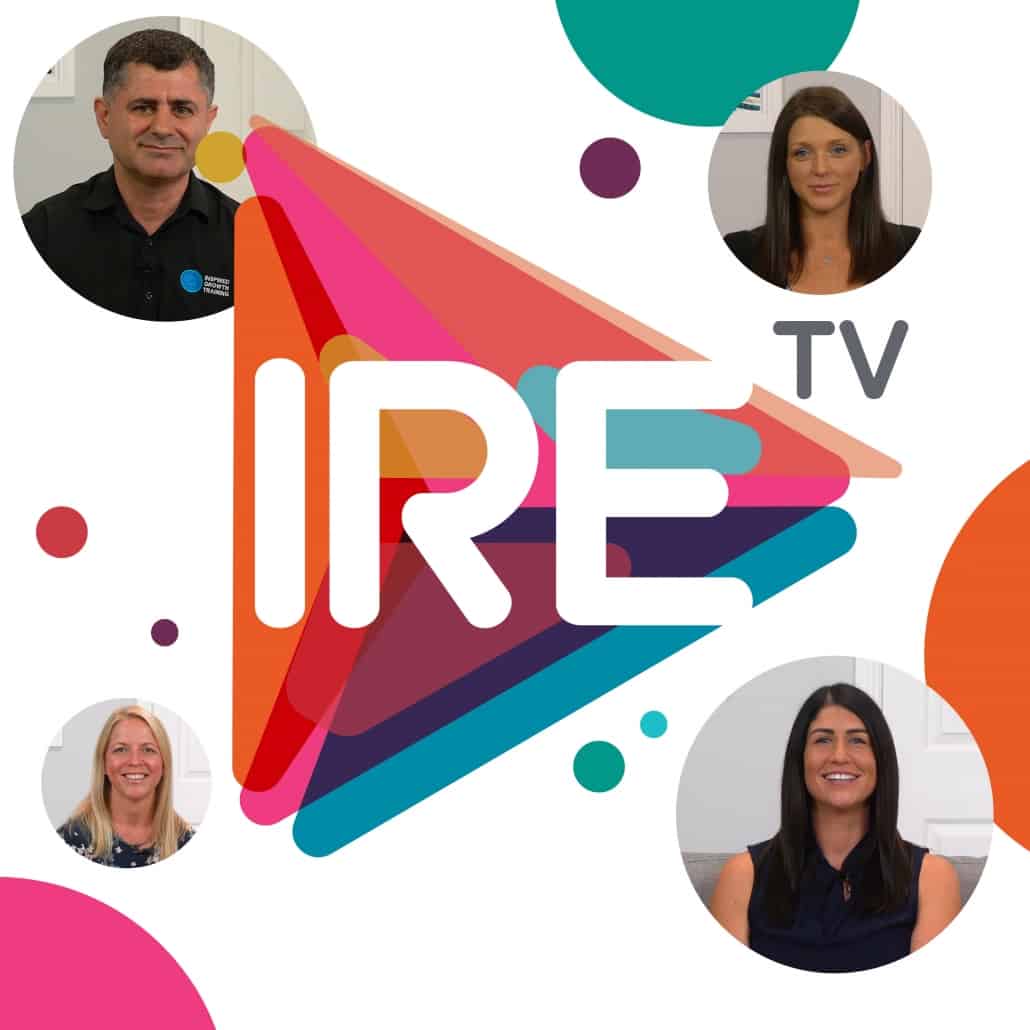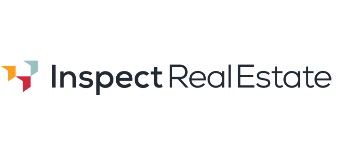Deniz Yusuf – How to build trust and win the business faster
Future Presenters
Past Presenters
Become a presenter
Transcript
(rhythmic music)
– Hi. Welcome to IRE TV.
I’m Hermione from InspectRealEstate.
I’m one of the account
managers and consultants here
working with agencies
all around Australia.
And today, I’d like to talk to you about
one of the less attractive, but arguably,
more important secrets to
real big business growth in real estate.
Now I know all around the industry,
it’s all buzz around new
business at the moment.
It’s how can we grow our rent rolls.
We’ve got new business, BDMs,
people dedicated to going out
and getting that business.
But one of the less attractive,
and probably not spoken about sides of it,
is actually looking after
your existing client base.
So in today’s session, what I
want to run through with you
is first of all, the changing
expectations and landscape
that we’re dealing with
with today’s clients.
I also want to talk to you about
the worth of a single
customer in your business.
And then the ripple
effect of them going out
into your community and local area
and talking about your business
and the experience they’ve
had with your business.
Talking about that customer experience,
I then want to take you
into actually how we could
potentially design that experience
from the ground up to
make sure that everyone
that touches your business
is going to go out and have
absolutely positive things to
say about their experience,
which has an amazing ripple effect
for the growth of your business.
And then I’m going to finish
today with some actual
core take homes that you can grow
to start implementing these
growth strategies into your business.
Now, if we want to have a look
at the changing landscape of today,
it has developed so much.
Technology has just skyrocketed us into
the 21st Century, I think
we’re in now (laughs)
and we don’t have to look back that far
to see how much things have changed.
If we have a look at the airline industry,
as an example, now you
don’t have to go back
that far to remember a time when
people were able to smoke on airplanes,
when you went to a local travel
agent to book any travel,
you had an actual physical ticket
that you had to have with you,
and if you didn’t have that
ticket and you lost it,
your travel plans were kaput.
Now, we only have to look
at the shopping industry
as well to have a look at
how much things have changed.
Not that long ago, you would
have needed to go into a shop,
pay cash, and potentially,
if you were very lucky,
someone would deliver that to your house.
Now, you can shop online,
you can compare prices 24-7.
You are able to get online
tracking delivery of that parcel
right into the point that
it comes to your door.
You can even then return
those parcels for free.
It’s pretty incredible how
much things have changed.
Across all different industries
things have changed so drastically,
and real estate has finally caught up.
Back in the day, we used
to sit down on a Saturday
and circle your ideal
properties in the newspaper
and head out to view those properties.
Now think about what you can do.
Online booking, for one.
Obviously with InspectRealEstate,
but also, virtual tours.
You’re able to actually walk through
and see a property without actually
physically going inspecting it,
which is pretty incredible.
You’re also able to sign leases online,
get instant notifications of
your tenancy or your purchase.
It’s pretty incredible how
much things have changed.
Now, unfortunately, that’s also created
a little bit of a baste
for us in the industry,
because those clients now have absolutely,
you might say outrageous expectations
of the communication and
level of service they’d like to receive.
And it’s not just communication,
it’s also around having an
experience with your agency.
And that experience
can make the difference
as between whether they’re going to go out
and speak positively about your business
and refer business to you.
Now let’s look at that in practice.
Let’s look at some core
business statistics.
Now, these statistics apply mostly to
general businesses across all industries
but I’ll break it down a little bit
into the real estate space.
Now, on a general year-to-year basis,
you’re going to lose between 10 and 15%
of your core client base.
Now, it’s probably more
practically applicable
if we talk about the rent roll,
the bread and butter of
the real estate business.
And if we look at, then…
if we take out the ones of those
that are unavoidable losses,
such as owners moving back
in or property selling,
the rest of those, around 84% of those
are actually going to leave because
they’re dissatisfied with your service.
And unfortunately, 4%
of those will tell you,
but the rest of them aren’t
actually even going to tell you.
So they’re walking out
into your local community
talking about your business,
and they haven’t even let you know
that they’re upset with the
service that they’ve received,
or the experience that they’ve
had within your business.
Now, the good news is,
is that we can leverage that knowledge.
So we know that every one
customer that you can keep
represents three that you
don’t actually have to
go out and attract
through your other means.
Now, and that can
actually lead to a drastic
15 to 50% increase in
profits for your business
by just focusing that
little 5% more effort
on keeping and retaining your customers.
The big challenge is, at
the moment in this space,
is that, once upon a time,
a customer will only tell three people
about their experience with your business.
Now they’re heading out
to tell 15 to 20 people.
The online social realm has actually
enhanced that even more.
We all know that when we’re heading out
to chose a restaurant,
when we’re heading out to chose
a hotel we’re going to stay at,
we’re going online and
we’re looking at reviews.
And God forbid, someone you know
has a negative experience at a local cafe.
They’re posting it and writing about it.
The reach on that in the social world
is pretty incredible.
One important thing we
need to remember on that,
is that the customer
does not differentiate
between sales and property management.
So they don’t see us as
two individual silos.
Now, here may be an
invisible wall in your office
or they may be a physical
wall in your office,
but the customer doesn’t see that.
And to be honest, they
don’t care about that.
They see you as one united business.
So we need to make sure that
the experience that they’re having
is not just specific for your department,
but congruent and positive
across that whole business.
(upbeat rock music)
Okay, so, now that we’ve had a look
at the importance of
the customer experience,
not just in your department,
but across the whole real estate business,
I just wanted to take
a moment to go through
a few case studies so we can
really understand the relevance of this.
The first case study I want to talk about
is actually one of my own experiences.
And this was when I was
recently looking for
a rental property in
the area that I live in.
Now, I went to lots of open homes,
submitted lots of inquiries,
and there was one property
that we were quite keen on.
We put our application in on Saturday
straight after we saw the property,
and then we thought, great,
we’re going to hear back
from someone on Monday,
at least with an update
on how our application went.
Monday rolls by, no word.
Tuesday arrives, I call the agent,
property manager is not
available to talk to me.
Okay, no worries, send her an email
and leave her a message.
Wednesday comes, and I
still haven’t actually
haven’t heard from the agent.
Meanwhile, the property is vacant,
so cue my concern for the landlord.
And then Thursday, finally, we hear back,
only after some persistent
calls to the office
that we were not the
successful applicants,
and that another applicant
has been chosen that morning.
Now that’s not one, but
that’s four or five days
worth of rental income that that owner
hasn’t actually received
because the agent wasn’t able
to get back to us and approve
a tenancy application on the Monday.
Now that’s fine, we
chose another property.
We’re much happier in the other property
at the end of the day,
but the interesting thing is that
that agency hasn’t actually realized
that I own an investment property,
my brother owns an investment property,
and potentially other people we know
that we’re also out
speaking to at brunches
and barbecues over the coming months,
and you can only imagine how many times
I’ve actually told that story.
The more amusing part
of it was then living
in the property that we
ended up living in that area,
that same agency was dropping fliers
in our letter box looking for
new investment managements.
So, you can imagine what
we did with that flier.
The second case study that
I’d like to talk to you about
is one I’d like to call
the vacating landlord.
Now this is the story
of a property manager
who had a vacating tenant
leaving one of their
fairly high end properties
that were in Sydney CBD.
Now this tenant, not through
any malicious activity
but just had not taken
good care of the property,
and due to a few things needing
repairing in this higher end property,
the property manager had to take
most of this tenant’s bond.
Now, the tenant left,
probably a bit despondent,
but called that property
manager back six months later.
Property manager was initially
quite surprised thinking,
oh dear, am I going to have to
go straight back to tribunal.
But that tenant had called back to say
property manager, I
have actually purchased
an investment property not
too far from your office
and, of course, I’d like you to manage it
because you were so
thorough in dealing with me.
But not just that, you didn’t
make me feel like a criminal,
you showed really true empathy,
and made the whole process
really thorough and efficient,
and I was really happy with the service
despite losing most of my
bond at the end of the day.
That same now investor, not tenant,
went on to purchase
another investment property
within 12 months in the CBD area,
and then was able to sell one of those
through the same agency 12 months later.
So we can start to see the importance
of these clients who we…
Sometimes they’re just waving
out the door and saying goodbye to,
but potentially, we’re missing out
on quite a number of their
business in the future.
Now, the third case study
I want to go through
is actually a bit of a bugbear
for many businesses that I’ve
gone into over the years.
When we’re having a look at growth,
we often have a look at the numbers
of business that’s coming in.
More less frequently, are we’re looking
at what’s actually going out the door.
Now I spoke before about
avoidable, unavoidable, losses.
We might look at some of those properties
that are selling in that
unavoidable loss category.
Now, I usually suggest to drill-down,
and you might want to
do this in your business
for the last 12 or 24 months,
and have a look at, of those properties
that have sold off your rent roll,
what percentage of those sold
with your agency versus another agency.
And sometimes, those numbers
can be quite alarming.
Sometimes the landlord will chose to sell
with a different agency
because aunty Betty works
at the agency down the road,
but sometimes, it’s because they haven’t
actually been a hundred percent happy
with the experience that they
have had with your agency.
And you don’t need to be a mathematician
to think about what the numbers are
of what the loss is to your business
if you’re not able to secure that sale.
(upbeat rock music)
(telephones ringing)
(computer chiming)
So, now that we’ve gone through
some of those case studies,
and we can really see the
importance of taking care of
all clients in our business,
and possibly, especially those tenants
that we sometimes treat as,
a little bit disposable,
we want to have a look at how
we can actually leverage that.
So, in having a look at this slide here,
we can see that there’s a few different
customer types that
will leave our business.
So we’ve got the first
one, which is a promoter.
Now, the promoter is the person
who is out there wearing your t-shirt.
They can be your best advocate,
and they can influence many other
potential customers to come your way.
We’ve got the detractor.
Now, he’s telling all his mates,
but he’s not telling all his
mates such a positive story.
He can be your worst critic,
and can influence many
other current and potential
customers away from your company.
Think keyboard warrior.
Then we have the passive client.
Now, they’re fairly indifferent
to you, and unfortunately,
this makes up quite a large
chunk of your customer base.
They can be your biggest uncertainty,
because they can influence other customers
away from you and away from your company.
So, we really want to figure out,
in your business, who
is wearing your t-shirt?
Who is out there singing your praises?
And how can we leverage those people?
So how can we make sure that,
if someone’s walking away from us
with a really positive experience,
are we getting a review from them
on our Google or Facebook page?
Likewise, if someone is
leaving your business,
do you know why they’re leaving?
Are they unhappy?
Now, in the real estate space,
it can be a little bit tricky.
As I mentioned before, we can talk about,
and probably drill down into
why landlords leave a little bit better.
It’s a bit hard with tenants
’cause tenants are constantly leaving us
and that’s a bit out of our control.
But are they leaving us
and going out and saying positive things
when they’re around the
brunch table next weekend,
or are they saying negative things.
And having a look at how you can
potentially leverage
the promoters and change
the perceptions of the
detractors in your business,
one really vital thing that you need to do
that a lot of really big
businesses are doing,
so your Virgins, your big banks,
all of these sort of people
are going out and doing,
is a customer experience map.
Now this involves going through
each and every aspect of your business.
So we’re looking at everything
from the application processing,
through to the lease signing,
through to the next
contact that you’re making
with that tenant, as an example.
And breaking that down
into the touch points
and really having a look at
what are our touch points,
what are we saying to our
clients, how are we saying it,
through which medium, and
is that actually a template
that we’ve been using from 10 years ago?
Or have we thought about
what do our customers
actually need to hear from
us at that point in time.
So customer experience mapping
is a really important thing.
Now there’s a lot of different
ways you can do this.
One client I’ve been into recently
literally got butcher’s paper all around
the different walls of one
of their meeting rooms.
Post-it notes, marker pens, and literally
drew it around every single wall
as a complete customer experience map.
And then they were able to break it down
and look at each one
of those touch points,
redesign their systems and processes,
and then training for their team
to match what they wanted
that service to look like.
So really designing that customer process
from the bottom right through to the top.
The other really important
thing to have a look at
is just having a look at your customer.
Who are they?
A lot of the time, when
we’re speaking to them,
we’re picturing them as
a one dimensional person.
They’re a tenant card from
the trust accounting system,
they’re name’s popped up,
they’re on the other end of the phone,
or we’re sending them an email.
Sometimes we forget that they’re
actually a multi-dimensional person.
They’re a mother, they’re a
brother, they’re a sister,
they’re a daughter, they’re a colleague.
Now potentially, they’ve
got things going on
in their lives as well, like we all do.
They might be going
through some hardships.
They might be going
through some good times.
But we also need to remember
that they may not just
be our current clients,
they may be our future clients.
And most importantly, they
know our future clients.
So are we treating them with empathy?
Are we being efficient,
and are we treating them
like we would if our mother was calling up
to do business with us?
To finish up today, I want to go through
some of the growth secrets
that big businesses use.
Now, one of the things
we’ve already spoken about
is customer experience mapping.
So to do this, if you
can put some priority
and time and energy into doing this,
I want you to go away and I want you
to map out your customer experience.
Whichever way you do it,
whether it’s on paper,
on the wall, on a spreadsheet,
go through and map out
all of your touch points
that a client has within your business.
If you’re a property
management and sales business,
be sure to do that across
both sides of your business,
and have a look at the cross points
as to where they actually connect.
And make sure that experience is congruent
from one side of your
business across to the other,
’cause remember that client
doesn’t necessarily see
each department as a separate department.
So we want them going out
and saying positive things
about all of our business so that,
even if they’ve been a tenant,
and they’re out there
talking to someone else
in your local marketplace,
they have positive things
to say and potentially
then that other person,
when they go to sell,
will choose your agency as
one of the front runners
to what they choose from.
The next takeaway I want to give you today
is the power of surveys.
Now, when we went back and talked about
the promoters and the detractors
and the passive people
within your business,
that all comes from a big survey system
called Net Promoter Scoring.
And that’s basically saying
how likely would you be
to refer our business to a friend.
If you’re going and sending out surveys
through your Survey Monkeys,
or if you’re doing them manually,
please make sure that you
include that one question.
Simplify it down, it doesn’t
need to be a long survey
on 10 to 15 points of their
experience within your business.
Even just two or three
questions can be enough
to get out exactly what you need from them
and the experience that they’ve
had within your business.
If you want to really drill down into it
and someone with authority
in your business has time,
I can’t underestimate
the power of a manager
or director call to your clients.
Especially for your landlords
and especially to past
vendors and purchasers.
And really be able to
drill down and ask them
how was your experience with our business,
and would be likely to refer our business
to a friend or family member.
The next takeaway is around finding out
what would they actually say,
but not necessarily to you.
And that’s around mystery shopping.
So mystery shopping can be done either
potentially, internally
through an administrator in your office,
or you can actually hire
third party companies
to actually go out and do
that mystery shopping for you.
And they could potentially
do a digital mystery shop
to let you know what the
experience of a customer is
online through seeing your
business on the portals,
through to your website,
through to booking
inspections, as an example.
Or they can potentially physically go out,
go into your office, go to
your open for inspections,
and let you know exactly what experience
people are having when
they come into contact
with your business.
The next thing I want to give you
as some homework to go away and do,
is to review your digital footprint.
Now, as I mentioned before,
this is really important.
If you’re looking to go away on a holiday,
I can guarantee that you’re going to be
looking at those reviews.
Now, you have to remember that
your customer is also online.
They’re used to having that little device
in the palm of their hands 24-7,
and before they’re choosing
to use your business,
and potentially, before
they even get in contact
with your business,
they are going online to see
what other people are
saying about your business.
So, do you have reviews?
Are they good?
Have you responded if they’re not?
And how could you then
potentially leverage
off some of those promoters that we were
talking about earlier to make sure
that their positive reviews
are going onto your…
either website or Google
reviews or Facebook reviews.
The next thing, and it’s
not the most pleasant thing
that you really want to
be paying attention to,
but every business should
have a complaints register.
Now hopefully, your business
is not a business that has any complaints,
but if you do get any
complaints or frustrations,
I want someone in your
office to be designated
to keeping a register of those complaints,
making sure that those complaints
have been reviewed and followed up.
Now an important part
of this process may be
also adding in a loss
management review process.
It’d be amazing what
you can actually learn
from going through and listening
to what people have to say,
and being able to improve your experience
and your processes as a result of that.
The last takeaway I want to give you today
is the potential of implementing
a customer service guarantee.
Not only will this be a good selling
and marketing tool for your business,
but it will also help to
keep your team accountable
and responsible to
delivering those experiences
and outcomes that you’ve designed
and said that you’re going to deliver.
Now across all of those pieces,
we need to remember to utilize
technology wherever we can,
utilize training wherever we can
to be continually improving
to meet those expectations,
and remembering we need to
have empathy and efficiency
to meet those clients’ expectations.
Why do we need to do all of this?
Well, we need to remember
that the most expensive
words in business are,
we’ve always done it that way.
If we don’t keep changing and evolving,
then we’re going to get left behind.
So, thank you for joining me today,
for today’s session of IRE TV.
My name’s Hermione.
If you do need any further information
or you’d like to chat about anything
I’ve spoken about in today’s session,
please don’t hesitate to get in contact.
Thank you.
(rhythmic music)

